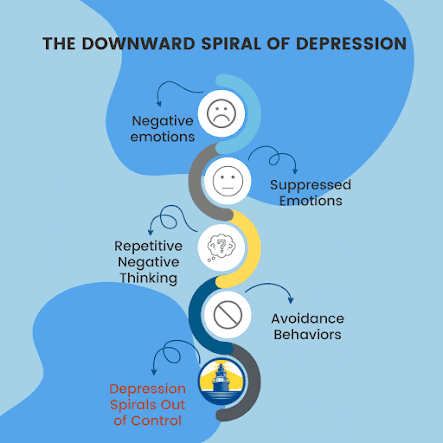I was inspired by a podcast called The 500 hosted by Los Angeles-based comedian Josh Adam Meyers. His goal, and mine, is to explore Rolling Stone Magazine's 2012 edition of The 500 Greatest Albums of All Time.
Album: #201
Album Title: The Downward Spiral
Artist: Nine Inch Nails
Recorded: Three Studios, Los Angeles, U.S.A.
My age at release: 28
How familiar was I with it before this week: Fairly
Song I am putting on my Spotify Playlist: Piggy
 |
| Album cover for The Downward Spiral from Nine Inch Nails. |
"You gotta hear this! It is incredible," he exclaimed.
Granted, he said that about a lot of music. Jeff was prone to superlatives when it came to his love of music and hockey. The two of us had bonded quickly around those two topics when I was first hired at the restaurant six months earlier. That, and the fact that he was, like me, born in St. Catharines, Ontario. Well, technically, he was from Thorold, -- a village that was incorporated into the Greater Niagara Region, including St. Catharines. Jeff was quite proud of being a classmate and friend of Thorold's best known citizen, Owen Nolan, who was drafted first overall into the 1990 National Hockey League by the Quebec Nordiques. Jeff proudly wore a Nolan Nordique jersey when we played pick-up hockey three times a week.
 |
| The only pictures I have of Jeff were scanned from an old photo album -- notice his Nordiques jersey playing pick-up hockey. |
Industrial music was defined by the AllMusic database and website as "the most abrasive and aggressive fusion of rock and electronic music." It is a genre that draws on, as the name suggests, harsh, mechanical and industrial sounds, blending them with avant garde experimental electronic noise. The pioneers of this provocative and transgressive cacophony was the British group Throbbing Gristle, which coined the term along with the release of its first full-length record, The Second Annual Report, in 1977.
 |
| The Second Annual Report album cover from Throbbing Gristle |
.jpg) |
| A collage of band logs from successful industrial metal bands of the 90s. |
In a way, the “spiral” is an example of perpetual self-fulfilling prophecy. An individual loses his job and is unable to provide for his family. Understandably, he feels useless and inadequate. These feelings impact his ability to sleep, eat and socialize, consequently impacting his ability to secure gainful employment. Pushed deeper into depression, he begins to withdraw from friends and family. The cycle can persist without professional intervention and suicide is possible.
.jpg) |
Suicide is a permanent solution to a temporary problem. If you experience such feelings, contact a professional (Dial or Text 9-8-8). |
 |
| The soundtrack to Natural Born Killers featured the song Burn from Nine Inch Nails. |
 |
Me aged 29 in the summer of 1994 , at a road hockey tournament in Victoria Park, London, Ontario. |

.png)



















